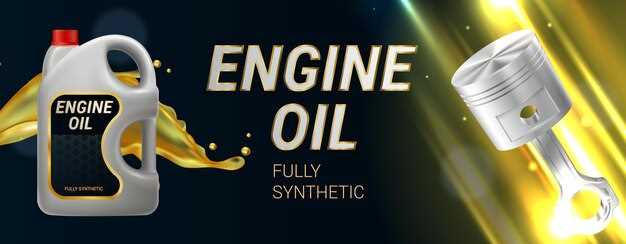
In the high-octane world of motorsport, every component of a vehicle plays a crucial role in maximizing performance. Among the most critical elements are the lubricants and fluids that ensure optimal operation under extreme conditions. The right oil not only reduces friction between moving parts but also enhances the overall efficiency of the engine, leading to increased power output and longevity.
Cooling is another essential factor in motorsport performance, as excessive heat can lead to catastrophic failures. Advanced cooling fluids are engineered to withstand high temperatures, preventing overheating while maintaining optimal thermal management. These fluids help to dissipate heat, ensuring that engines and other critical components operate within their safe temperature ranges.
Choosing the right combination of lubricants and fluids is vital for achieving peak performance on the track. Teams rely on a comprehensive understanding of how different oils and cooling fluids interact with their specific engine designs and operational parameters. As technology evolves, so too do the formulations, leading to breakthroughs that push the boundaries of motorsport performance.
Choosing the Right Racing Oil for Your Engine Type

Selecting the appropriate racing oil is crucial for optimizing the performance of your engine. Different engine types demand specific formulations to ensure maximum efficiency and longevity. The right fluid not only provides lubrication but also enhances cooling properties, which are essential during high-speed racing conditions.
When considering racing oils, it is important to examine the viscosity grade that suits your engine’s design. Higher-performance engines typically require oils with lower viscosity ratings at high temperatures, as these fluids better penetrate tight engine tolerances, reducing friction and improving performance. Look for oils labeled with multi-viscosity ratings, which guarantee functionality across a varied temperature range.
In addition to viscosity, the oil’s composition–whether synthetic or conventional–plays a significant role in its performance. Synthetic oils are engineered to withstand the extreme demands of racing, providing superior protection against thermal breakdown and maintaining better fluidity under pressure. This characteristic is vital for engines pushing their limits in racing scenarios.
Another factor to consider is the inclusion of additives that enhance performance. Additives such as detergents, anti-wear agents, and viscosity improvers can dramatically influence both cooling and protection levels. These compounds work together to minimize deposit formation inside the engine and help maintain optimal operating temperatures.
Before making a choice, it is advisable to consult the specifications provided by the engine manufacturer. Understanding your engine’s requirements will guide you in selecting the right racing oil that optimally balances lubrication, cooling, and overall performance. Ultimately, the right fluid will contribute to enhanced reliability and efficiency during races.
Cooling Fluids: Enhancing Performance and Preventing Overheating

In the high-stakes world of racing, maintaining optimal engine temperatures is crucial for performance. Cooling fluids play a vital role in preventing overheating, which can lead to severe mechanical failures and diminished power output. These specialized fluids are engineered to transfer heat away from critical engine components, ensuring that the engine operates within its designed temperature range.
Modern cooling fluids have evolved significantly, incorporating advanced additives that enhance thermal conductivity and boiling point stability. This ensures efficient heat dissipation under extreme racing conditions. The use of synthetic oils in combination with cooling fluids can further improve thermal management, allowing engines to maintain optimal performance without succumbing to thermal stress.
Additionally, the viscosity of cooling fluids is specifically formulated to remain consistent across a wide temperature spectrum. This is essential for maintaining proper flow rates in high-performance engines, especially during intensive racing events where sudden temperature spikes can occur. An effective cooling system using these fluids not only enhances engine longevity but also contributes to better overall horsepower and torque output.
Moreover, the integration of cooling fluids with engine oils can create a synergistic effect, where the characteristics of both fluids complement each other. This combination assists in reducing friction, thereby improving engine efficiency while also managing heat effectively. By utilizing cutting-edge cooling technologies and fluids, racers can ensure that their vehicles remain competitive, maximizing performance and reliability on the track.
Understanding the Role of Additives in Motorsport Lubricants
Additives play a crucial role in enhancing the performance of racing oils and fluids used in motorsport applications. These chemical compounds are formulated to improve the physical and chemical properties of base oils, ensuring optimal lubrication under extreme conditions encountered during racing.
One of the primary functions of additives is to reduce friction between moving parts. Friction modifiers are added to racing oils to minimize resistance, leading to improved engine efficiency and power output. By forming a protective layer on the metal surfaces, these additives help decrease wear and tear, extending the lifespan of engine components.
Moreover, anti-wear additives are essential for motorsport lubricants, especially under the high-stress environments typical in racing. These compounds create a film that protects against metal-to-metal contact, reducing the likelihood of catastrophic engine failure during intense racing conditions.
Another significant category of additives is detergents and dispersants, which maintain engine cleanliness. In high-performance racing, debris can accumulate rapidly, leading to increased wear and decreased performance. These additives help to neutralize acids and prevent the formation of sludge, ensuring that the oil remains effective throughout the race.
Furthermore, viscosity index improvers help racing fluids maintain optimal flow characteristics across varying temperatures. In motorsport situations, engines can heat up quickly; therefore, these additives ensure that the oil remains effective at both high and low temperatures, providing reliable protection and performance.
Lastly, antioxidant additives are vital in preventing oxidation of the oil, which can lead to breakdown and loss of performance. In racing environments, high temperatures can accelerate oxidation, making these additives indispensable for maintaining lubricant integrity over the duration of the race.
In summary, the careful selection and formulation of additives in motorsport lubricants are indispensable for achieving superior performance. With their ability to reduce friction, prevent wear, maintain cleanliness, improve viscosity stability, and combat oxidation, additives ensure that racing oils and fluids meet the rigorous demands of competitive motorsport.












